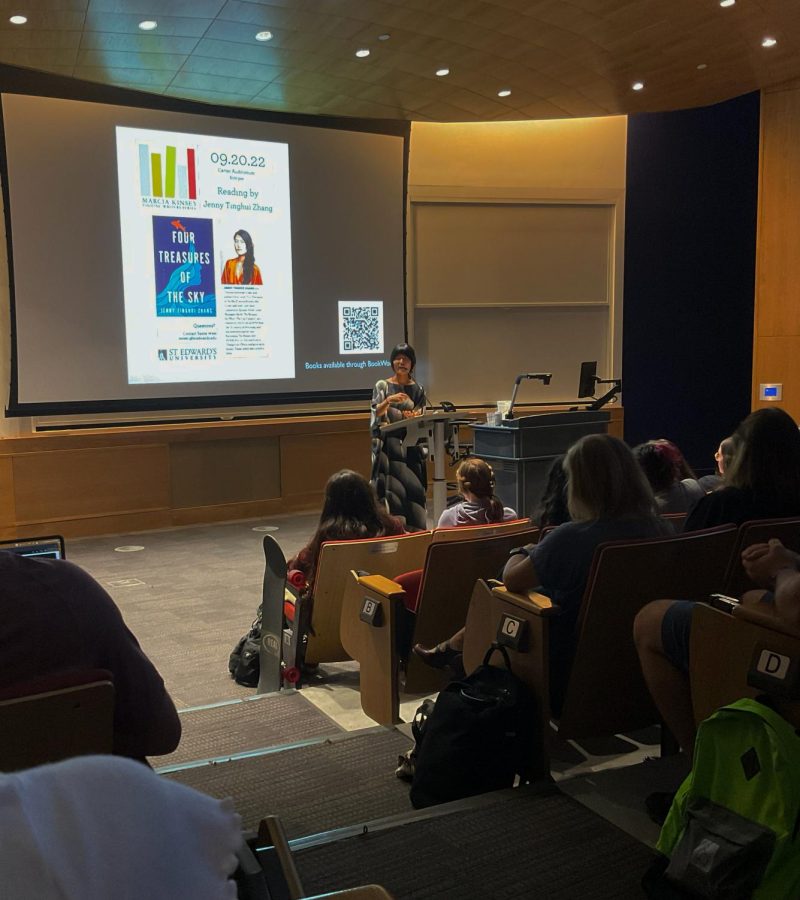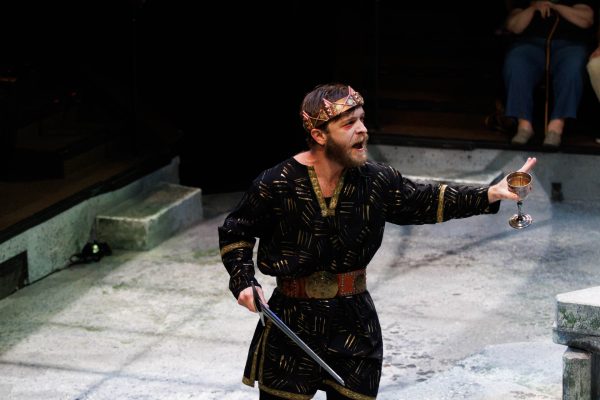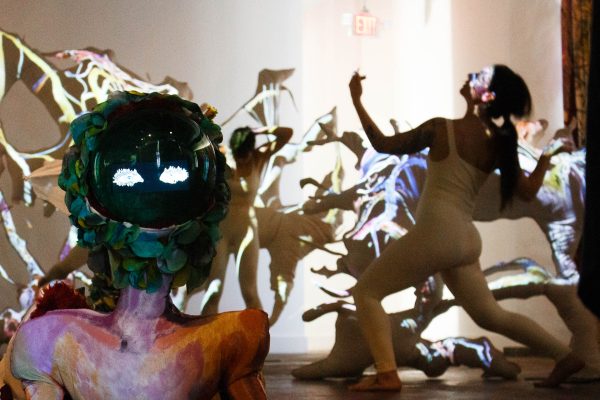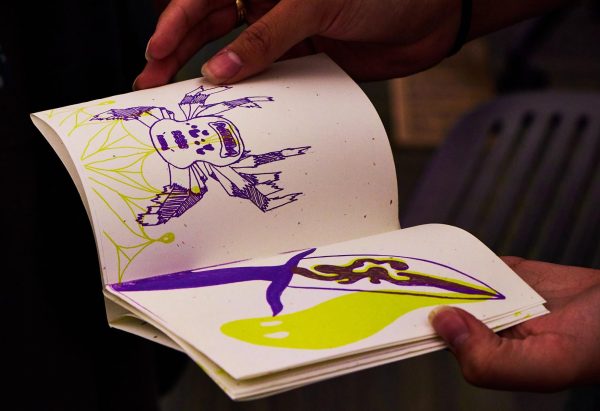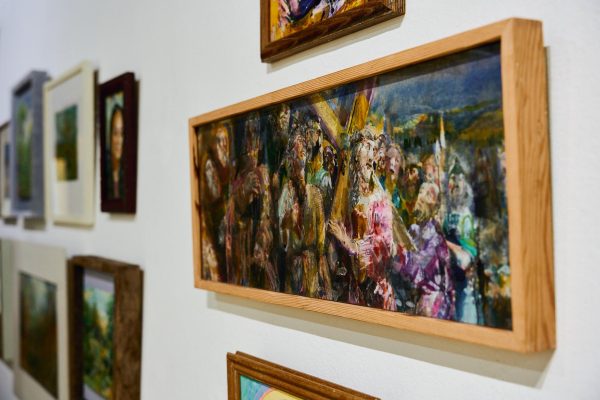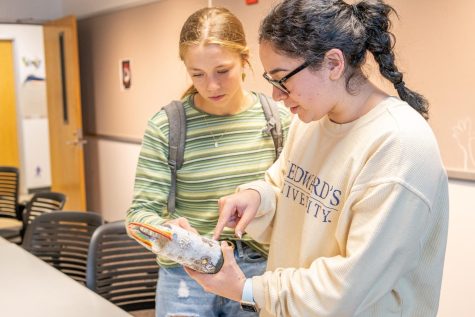Visiting Writers Series: The value of untold histories through alumni Jenny Tinghui Zhang’s novel “Four Treasures of the Sky”
Kiana Poorfard / Hilltop Views
Zhang addresses the crowd gathered to hear here speak in Carter Auditorim on campus.
Like many aspects of life, St. Edward’s University’s Marcia Kinsey Visiting Writers Series was relegated to the virtual realm for the bulk of the pandemic. The 2022-2023 academic year is the first year the series is back in person, opening with a showcase of debut author Jenny Tinghui Zhang and her book “Four Treasures of the Sky”.
During the event, Zhang read two excerpts from the book. The reading was followed by a Q&A where the audience — made up of students, staff and off-campus visitors — could participate.
“One of the things that I love best about this (visiting writers) series is the way it makes connections across campus and the way it starts a collective conversation among us,” Sasha West, an associate professor at St. Edward’s, said during her introduction of the event.
West said she knew Zhang would be a perfect way to start the series because Zhang would be able to speak to so many people, even though everybody comes from really different places.
Zhang, who hails from Austin, visited campus earlier in the day to speak to Professor Mary Specht’s fiction workshop I class. After an icebreaker involving favorite tacos (Zhang’s favorite was the Migas taco from Taco Joint on San Jacinto Boulevard), Zhang spoke to the class about the writing process for her first novel and fielded questions from students. Specht made a point to bring up the novel’s structural technique and its use of jumping back and forth in time. She also said Zheng’s debut was “rich in terms of character and lyrical language.”
“Four Treasures of the Sky” is a historical fiction novel centering around a young Chinese girl who is kidnapped and smuggled from China to San Francisco in the late 1800s. There was certainly a real-life inspiration for the novel, not just from history (such as the Chinese Exclusion Act of 1882), but from current anti-Chinese and anti-Asian sentiments. Zhang started writing the novel around April of 2019 and then published it three years later, saying it was “a time when there was a lot of rhetoric around Asian-Americans in this country.” She felt like she could do nothing but write out her anger.
Zhang’s inspiration for the book involved her father learning about the extrajudicial execution by hanging five Chinese men in Pierce, Idaho in 1885. He asked her to write about it — and echoing a similar sentiment as she had expressed in Specht’s class — Zhang told the audience that in researching for the novel, she found many instances of Chinese people being murdered or hanged.
“Most of this isn’t in our history books,” Zhang said. “I didn’t even learn about the Chinese Exclusion Act until maybe the last semester of my undergrad when I went out to take an Asian-American intro studies course. It was no longer a question of ‘I need to write this book for my dad to satisfy my father’s curiosities,’ it was also an urgency of ‘how do we say that these things happened? How do we put it back into history?’”
Like Specht, West heaped praise onto “Four Treasures of the Sky,” mentioning a glowing New York Times review of the book as well.
“I knew Zhang’s work would speak to our writing students because it’s so masterful, but her novel is also such a great fit for our freshman seminar classes,” West said. “Our common theme this year is ‘Reckoning with History,’ and Zhang’s historical novel helps us see how current anti-Asian violence has a lineage in violence against Asian immigrants after the Chinese Exclusion Act of 1882.”
Past iterations of the Marcia Kinsey Visiting Writers Series during its online-only era have included other accomplished readers like Roger Reeves — who was just longlisted for the National Book Award.
“Nothing compares to the shared experience of live literature,” West said. “We wanted to bring writers back to campus as soon as it was safe. It feels amazing to be back in person with all of you.”
As for future events, West is hopeful the rest of the series will continue to be on campus and mentioned it will include writers such as Emily Pérez, who will read poetry on Oct. 13, and Tomás Q. Morín, who will read from a new memoir that focuses on mental health.


